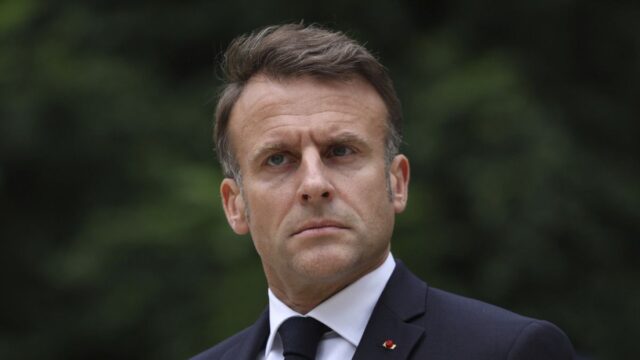President Emmanuel Macron’s legislative plan will have to turn to the left to be able to count, from now on, on the support of the National Assembly.
French voterss gave to a broad left-wing coalition highest number of seats in Parliament in crucial general election that have kept the extreme right out of power, but they left France in an unprecedented situation: there is no dominant political bloc in Parliament.
Although the fracture of Parliament is not uncommon in Europe, France had never experienced a similar situation in its modern history. Therefore, the country finds itself in uncharted waters, with Tense negotiations to form a new Government and with the need to appoint a prime minister who shares power with the president.
No clear figure has emerged as future prime minister
Emmanuel Macron You can propose a name, but that choice will need the support of a parliamentary majority. The French president has said that he will wait to decide the next steps and He will travel to Washington this week to attend a NATO summit. The new legislators They start working on Monday.
Have surged three major political blocsbut none of them are close to obtaining a majority of at least 289 of the 577 seats. Los results so far show 182 seats for the New Popular Front, 168 for the Macronist coalition and 143 for the National Group.
The ‘tetrix’ of possible coalitions
The division of the lower house will force legislators to find a consensus between the parties to agree on the Government’s positions and its legislative program. The deep political divisions of France around taxes, Immigration and politics in the Middle East make this task especially difficult.
The results mean that Macron’s centrist allies will almost certainly be unable to implement their pro-business proposals, such as the promise to review unemployment benefits. It may also be more difficult to pass a budget.
Macron could seek an agreement with more moderate elements of the left. France has no tradition in this senseso negotiations, if they take place, are likely to be difficult and lead to a informal and fragile alliance.
Macron has said he will not work with the hard left of Insoumise France, but it could reach out to other parties of the New Popular Front: the socialists and the verdes. However, they may refuse to accept it.
Macron turns left
Last week, his Government suspended a decree that would have reduced workers’ rights at unemployment benefitswhich was interpreted as a gesture of pacification towards the left.
Instead, some of Macron’s allies are pushing to form a government around the centrists and Republicans, who together with their allies came fourth with more than 60 seats. However, this group would still need the support of more deputies.







